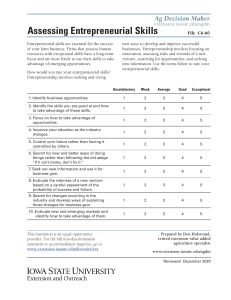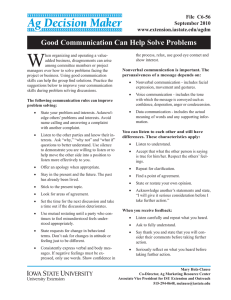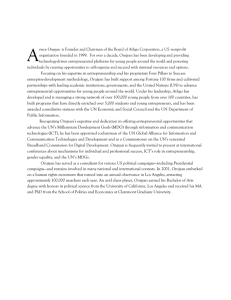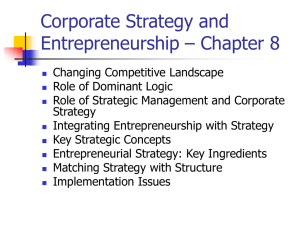Assessing Entrepreneurial Skills - Iowa State University Extension
advertisement
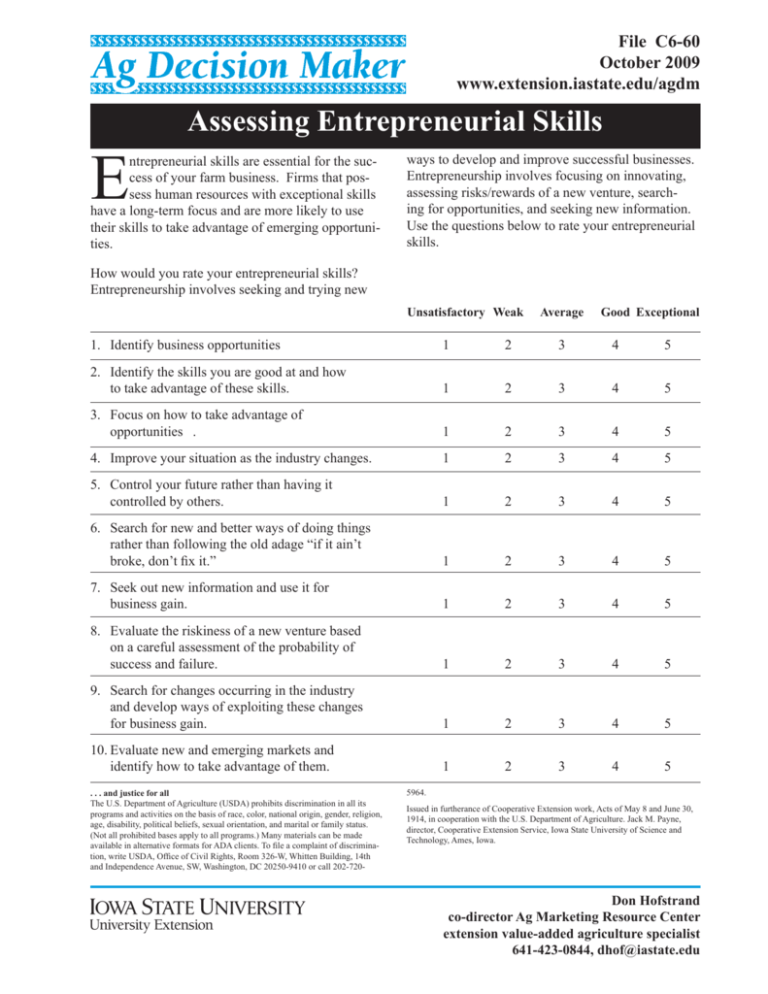
File C6-60 October 2009 www.extension.iastate.edu/agdm Assessing Entrepreneurial Skills E ntrepreneurial skills are essential for the success of your farm business. Firms that possess human resources with exceptional skills have a long-term focus and are more likely to use their skills to take advantage of emerging opportunities. ways to develop and improve successful businesses. Entrepreneurship involves focusing on innovating, assessing risks/rewards of a new venture, searching for opportunities, and seeking new information. Use the questions below to rate your entrepreneurial skills. How would you rate your entrepreneurial skills? Entrepreneurship involves seeking and trying new Unsatisfactory Weak Average Good Exceptional 1. Identify business opportunities 1 2 3 4 5 2. Identify the skills you are good at and how to take advantage of these skills. 1 2 3 4 5 3. Focus on how to take advantage of opportunities . 1 2 3 4 5 4. Improve your situation as the industry changes. 1 2 3 4 5 5. Control your future rather than having it controlled by others. 1 2 3 4 5 6. Search for new and better ways of doing things rather than following the old adage “if it ain’t broke, don’t fix it.” 1 2 3 4 5 7. Seek out new information and use it for business gain. 1 2 3 4 5 8. Evaluate the riskiness of a new venture based on a careful assessment of the probability of success and failure. 1 2 3 4 5 9. Search for changes occurring in the industry and develop ways of exploiting these changes for business gain. 1 2 3 4 5 10. Evaluate new and emerging markets and identify how to take advantage of them. 1 2 3 4 5 . . . and justice for all The U.S. Department of Agriculture (USDA) prohibits discrimination in all its programs and activities on the basis of race, color, national origin, gender, religion, age, disability, political beliefs, sexual orientation, and marital or family status. (Not all prohibited bases apply to all programs.) Many materials can be made available in alternative formats for ADA clients. To file a complaint of discrimination, write USDA, Office of Civil Rights, Room 326-W, Whitten Building, 14th and Independence Avenue, SW, Washington, DC 20250-9410 or call 202-720- 5964. Issued in furtherance of Cooperative Extension work, Acts of May 8 and June 30, 1914, in cooperation with the U.S. Department of Agriculture. Jack M. Payne, director, Cooperative Extension Service, Iowa State University of Science and Technology, Ames, Iowa. Don Hofstrand co-director Ag Marketing Resource Center extension value-added agriculture specialist 641-423-0844, dhof@iastate.edu
